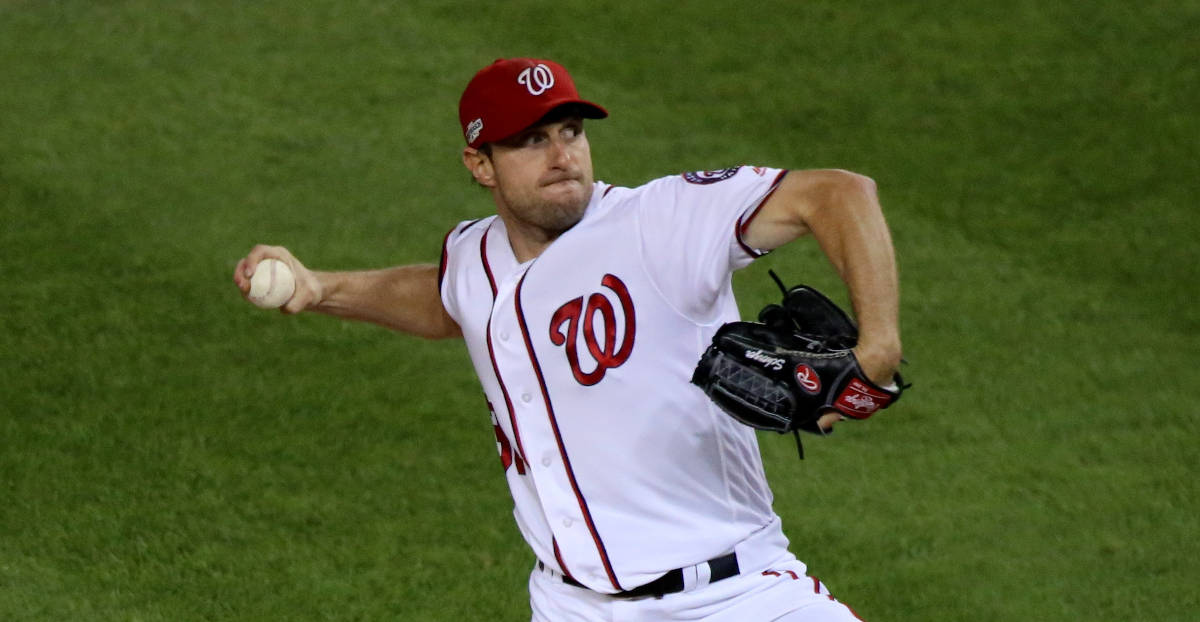In between the last time we checked in on the MLB's initial proposal, Max Scherzer said "there's no reason to engage with MLB in any further compensation reductions," and Scott Boras urged players to not bail out owners who stretched themselves too thin with non-baseball investments.
So it's no surprise that the MLBPA's economic proposal to the league avoided conceding further reductions to the already prorated salaries. That said, the union's proposal did shift some ground in a way that might make further negotiations possible.
- Games: MLBPA proposed an 114-game (ir)regular season running from June 30 to Oct. 31, or 32 more than the league offered.
- Deferrals: The union offered up to $100 million in deferrals with interest if the postseason is canceled or shortened.
- Postseason: The union is open to an expanded playoff system the next two seasons.
All of these do something to address the chief concerns from team owners, which is generating more TV revenue to offset the loss of gameday revenue. That's an improvement over the MLB's initial proposal, which offered nothing for the players except the mere existence of games.
The questions from here:
No. 1: How much do more games help? Buster Olney said Sunday that there is a group of owners "perfectly willing to shut down the season, to slash payroll costs and reduce losses." This could be seen as posturing, but it's also reflected in the vastly different ways ownerships are treating their own non-uniformed employees, and some indeed may feel comfortable with the arrangement, knowing players will receive the brunt of the outward dissatisfaction.
The Athletic's Evan Drellich said MLB owners "need a shorter schedule," but former MLBPA laywer Gene Orza told the outlet that he thinks Rob Manfred is getting the players to offer something the teams want, one way or another:
“Rob (Manfred) has this tendency, which can fool some people, but doesn’t fool you if you’ve been around the block once or twice,” former MLBPA lawyer Gene Orza said earlier Sunday. “And that is: He has something he knows he’s going to give you for nothing, but why bother giving it to you for nothing if you might throw it out there without it, and make you demand it, so that he can come back and say, ‘Well, all right, if you want to do it, I mean, OK, but you got to give me something for it.’
“No doubt in my mind, they want more games. They know the players want more games, so let the players ask for more than 82 games. … I think the union is sensitive to that.”
No. 2: Will this negatively affect player safety? The proposal allows all players to opt out without pay, and for designated high-risk players -- which includes the health situations of their families -- to earn pay and service time without participating, so there is a nod to the idea that more games = more risk. I'm just not sure how increased doubleheaders jibes with the idea that players should be as separated as possible.
Regarding the latter question, the league would already be taking a leap of faith by attempting to conduct a season at all, so maybe the inherent risk is already large enough that the number of games doesn't really register as an unique factor. It just might be difficult to tell right now because the safety stuff has taken a backseat to player concerns, and COVID-19 in general has taken a backseat to the nationwide unrest.
As for the former question, Josh compared prorated TV deals to prorated player payrolls and figured that more than half the teams would be in the red for 2020. A combination of more games and deferrals could be enough to make the 2020 math work for most teams. From there, there's the matter of whether all teams need to be protected from occasionally being on the wrong side of the math before going forward. I don't see why owners should be immune from the risks of fluctuations in their assets, and it'll be fascinating to see whether this creates any cracks in the league ranks after years of record revenues made cohesion easy.
(Photo of Max Scherzer by Arturo Pardavila III)






